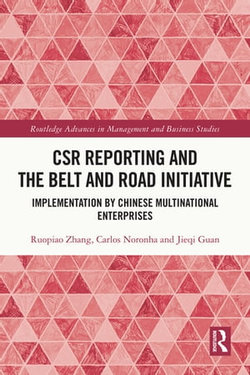The Belt and Road Initiative (BRI) is a major development strategy launched by the Chinese government with the goal of fostering economic cooperation among countries along the proposed routes. The BRI marks a new era in which multinational enterprises (MNEs) from developing countries are beginning to take primary responsibility for driving global flows of outward foreign direct investment (OFDI). Among hotly debated topics on how the BRI is reshaping the global competitive landscape, corporate social responsibility (CSR) reporting practices of Chinese MNEs along the Belt and Road are noteworthy but relatively less discussed.
This book investigates how do Chinese MNEs engage with, define, and implement CSR under such an enormous cooperative initiative through analyzing their CSR reporting practices in the BRI host countries. Besides this, opportunities and challenges of the BRI investments for sustainable development in host countries are examined. The book provides critical insights into the current institutional architecture for CSR reporting to promote sustainable development. It also highlights the importance of stakeholders’ capacities to sustain, enact, and execute strict CSR disclosure laws and regulations.
The findings mark important implications, particularly in view of growing concerns about international reputational damage of unsustainable OFDI. The book is suitable for researchers, undergraduate and postgraduate students in the fields of CSR, sustainability development, accounting, and international business; as well as others who are keen on the latest development of the BRI in relation to other developing and least-developed countries.



Share This eBook: